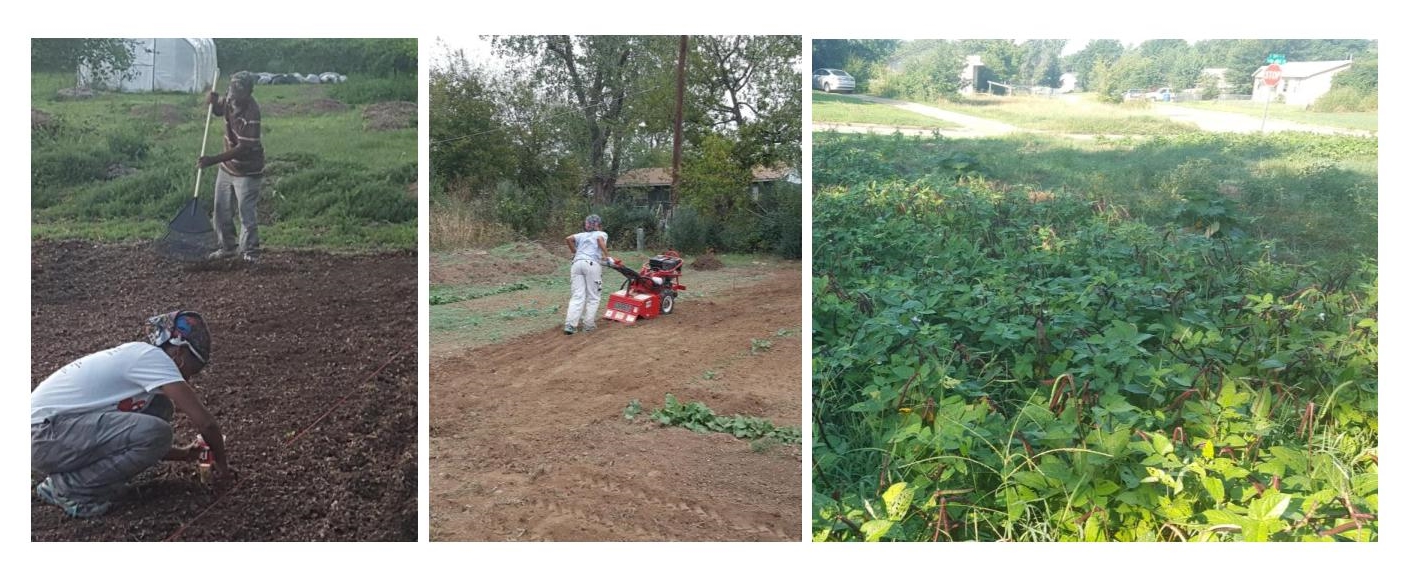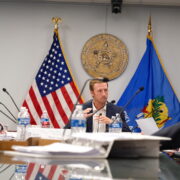
By Sherry Laskey
Eagle Guest Writer
It’s awesome news that Tulsa north will have a grocery store in the very near future. In the meantime, how does a community manage food insecurity within its own neighborhoods?
Food pantries are an option, but how does the community become self sufficient? Does everyone living in the community utilize a food pantry? What happens if there is a run on food, in the case of an emergency, or what if there’s a breakdown in the food transportation system? What can we do as a community to be proactive in these types of situation? These are the questions we must ask ourselves as we discuss the changes that are taking place in our community.
Everyone should be aware of the health disparities and mortality rates as they relate to lack of access to healthy foods in District One. There is a higher prevalence of diabetes, obesity, hypertension, and cardiovascular disease.
According to a 2012 Harvard Health Letter, “Backyard gardening can inspire you to take an interest in the origins of your food and make better choices about what you put on your plate,” says Dr. Helen Delichatsios, an internist at Harvard-affiliated Massachusetts General Hospital.”
Growing your own food has been linked to increased Vitamin D levels because of being outdoors in the sun. Gardening is a form of exercise; it also improves one’s mental health. People who grow their own food will develop a discerning palate as it relates to “fresh out the garden food” as opposed to grocery store purchases. People also save money when they grow their own food. There is a sense of control when people grow their own food. In the end, growing your own food has many benefits. Growing your own food gives the community a sense of power and accomplishment. People know exactly what they are eating when they grow their own food.
How do we get people to grow their own food when there has been such a stigma attached to it? Some say, “Oh my goodness, that is so country!” or “Oh my God, that’s like slavery!” Yet, they want to eat Grandma’s greens and black-eyed peas for dinner. There’s very little thought given to where our food comes from. It just miraculously appeared on the grocery store shelf. When food is grown locally there’s a decrease in the amount of time it takes food to get to the table.
So many people from our community can remember when their parents or grandparents may have had a garden. They may have spent summers with family members in rural America who grew their own food. There may have been a neighbor or two who grew food in their back or front yard. But for the most part, many of us have stopped growing our own food for a variety of reasons.
There have been many attempts to encourage our community to grow food. Most people grow food in their own backyard. However, community gardens are not successful in certain neighborhoods. There’s plenty of initial support but when the summer heat arrives everyone is looking for a cool place. It’s understandable, after all, we do live in Oklahoma. But how do we encourage more people to grow their own food? What motivates communities to grow their own food?
There is a huge movement towards Urban Agriculture (also known as Urban Farming and Urban Gardening). Urban Agriculture is being taunted as new industry; as well as the economic opportunity to impact distressed urban communities. There are approximately three hundred acres of vacant lots in the city of Tulsa. What if vacant lots in Tulsa’s zip codes 74106 and 74126, were used for growing food instead of six-foot weeds? Imagine, if several neighbors or a Neighborhood Association, decided to grow food in neighborhood, these acts would build neighborhood cohesiveness and improve the overall quality of life.
Neighborhood gardens also increase property value. The number of calls to 311 for overgrown lots would decrease. The City would save money on maintaining these lots. When the community supports local food, it diminishes the transportation cost and environmental carbon foot print.
Other major cities are doing it, why can’t Tulsa north? If you, your neighbors, club members, church, or any Neighborhood Association is interested in growing food, please call 918-221-9393 or email UrbanAgNorthTulsa@gmail.com. We can grow our own food Tulsa north. We can be the change.









